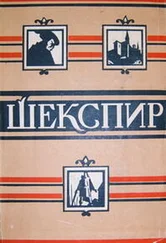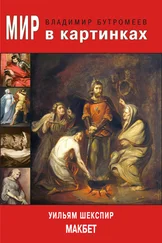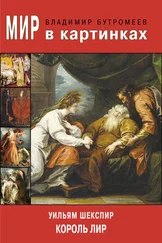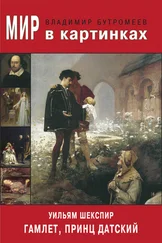Уильям Шекспир - Beautiful Stories from Shakespeare
Здесь есть возможность читать онлайн «Уильям Шекспир - Beautiful Stories from Shakespeare» — ознакомительный отрывок электронной книги совершенно бесплатно, а после прочтения отрывка купить полную версию. В некоторых случаях можно слушать аудио, скачать через торрент в формате fb2 и присутствует краткое содержание. Жанр: Европейская старинная литература, Драматургия, foreign_dramaturgy, на английском языке. Описание произведения, (предисловие) а так же отзывы посетителей доступны на портале библиотеки ЛибКат.
- Название:Beautiful Stories from Shakespeare
- Автор:
- Жанр:
- Год:неизвестен
- ISBN:нет данных
- Рейтинг книги:5 / 5. Голосов: 1
-
Избранное:Добавить в избранное
- Отзывы:
-
Ваша оценка:
- 100
- 1
- 2
- 3
- 4
- 5
Beautiful Stories from Shakespeare: краткое содержание, описание и аннотация
Предлагаем к чтению аннотацию, описание, краткое содержание или предисловие (зависит от того, что написал сам автор книги «Beautiful Stories from Shakespeare»). Если вы не нашли необходимую информацию о книге — напишите в комментариях, мы постараемся отыскать её.
Beautiful Stories from Shakespeare — читать онлайн ознакомительный отрывок
Ниже представлен текст книги, разбитый по страницам. Система сохранения места последней прочитанной страницы, позволяет с удобством читать онлайн бесплатно книгу «Beautiful Stories from Shakespeare», без необходимости каждый раз заново искать на чём Вы остановились. Поставьте закладку, и сможете в любой момент перейти на страницу, на которой закончили чтение.
Интервал:
Закладка:
How long acting continued to be Shakespeare’s sole profession we have no means of knowing, but it is in the highest degree probable that very soon after arriving in London he began that work of adaptation by which he is known to have begun his literary career. To improve and alter older plays not up to the standard that was required at the time was a common practice even among the best dramatists of the day, and Shakespeare’s abilities would speedily mark him out as eminently fitted for this kind of work. When the alterations in plays originally composed by other writers became very extensive, the work of adaptation would become in reality a work of creation. And this is exactly what we have examples of in a few of Shakespeare’s early works, which are known to have been founded on older plays.
It is unnecessary here to extol the published works of the world’s greatest dramatist. Criticism has been exhausted upon them, and the finest minds of England, Germany, and America have devoted their powers to an elucidation of their worth.
Shakespeare died at Stratford on the 23rd of April, 1616. His father had died before him, in 1602, and his mother in 1608. His wife survived him till August, 1623. His so Hamnet died in 1596 at the age of eleven years. His two daughters survived him, the eldest of whom, Susanna, had, in 1607, married a physician of Stratford, Dr. Hall. The only issue of this marriage, a daughter named Elizabeth, born in 1608, married first Thomas Nasbe, and afterwards Sir John Barnard, but left no children by either marriage. Shakespeare’s younger daughter, Judith, on the 10th of February, 1616, married a Stratford gentleman named Thomas Quincy, by whom she had three sons, all of whom died, however, without issue. There are thus no direct descendants of Shakespeare.
Shakespeare’s fellow-actors, fellow-dramatists, and those who knew him in other ways, agree in expressing not only admiration of his genius, but their respect and love for the man. Ben Jonson said, “I love the man, and do honor his memory, on this side idolatry, as much as any. He was indeed honest, and of an open and free nature.” He was buried on the second day after his death, on the north side of the chancel of Stratford church. Over his grave there is a flat stone with this inscription, said to have been written by himself:
Good friend for Jesus sake forbeare
To digg the dust encloased heare:
Blest be ye man yt spares these stones,
And curst be he yt moves my bones.
A MIDSUMMER NIGHT’S DREAM
Hermia and Lysander were lovers; but Hermia’s father wished her to marry another man, named Demetrius.
Now, in Athens, where they lived, there was a wicked law, by which any girl who refused to marry according to her father’s wishes, might be put to death. Hermia’s father was so angry with her for refusing to do as he wished, that he actually brought her before the Duke of Athens to ask that she might be killed, if she still refused to obey him. The Duke gave her four days to think about it, and, at the end of that time, if she still refused to marry Demetrius, she would have to die.
Lysander of course was nearly mad with grief, and the best thing to do seemed to him for Hermia to run away to his aunt’s house at a place beyond the reach of that cruel law; and there he would come to her and marry her. But before she started, she told her friend, Helena, what she was going to do.
Helena had been Demetrius’ sweetheart long before his marriage with Hermia had been thought of, and being very silly, like all jealous people, she could not see that it was not poor Hermia’s fault that Demetrius wished to marry her instead of his own lady, Helena. She knew that if she told Demetrius that Hermia was going, as she was, to the wood outside Athens, he would follow her, “and I can follow him, and at least I shall see him,” she said to herself. So she went to him, and betrayed her friend’s secret.
Now this wood where Lysander was to meet Hermia, and where the other two had decided to follow them, was full of fairies, as most woods are, if one only had the eyes to see them, and in this wood on this night were the King and Queen of the fairies, Oberon and Titania. Now fairies are very wise people, but now and then they can be quite as foolish as mortal folk. Oberon and Titania, who might have been as happy as the days were long, had thrown away all their joy in a foolish quarrel. They never met without saying disagreeable things to each other, and scolded each other so dreadfully that all their little fairy followers, for fear, would creep into acorn cups and hide them there.
So, instead of keeping one happy Court and dancing all night through in the moonlight as is fairies’ use, the King with his attendants wandered through one part of the wood, while the Queen with hers kept state in another. And the cause of all this trouble was a little Indian boy whom Titania had taken to be one of her followers. Oberon wanted the child to follow him and be one of his fairy knights; but the Queen would not give him up.
On this night, in a mossy moonlit glade, the King and Queen of the fairies met.
“Ill met by moonlight, proud Titania,” said the King.
“What! jealous, Oberon?” answered the Queen. “You spoil everything with your quarreling. Come, fairies, let us leave him. I am not friends with him now.”
“It rests with you to make up the quarrel,” said the King.
“Give me that little Indian boy, and I will again be your humble servant and suitor.”
“Set your mind at rest,” said the Queen. “Your whole fairy kingdom buys not that boy from me. Come, fairies.”
And she and her train rode off down the moonbeams.
“Well, go your ways,” said Oberon. “But I’ll be even with you before you leave this wood.”
Then Oberon called his favorite fairy, Puck. Puck was the spirit of mischief. He used to slip into the dairies and take the cream away, and get into the churn so that the butter would not come, and turn the beer sour, and lead people out of their way on dark nights and then laugh at them, and tumble people’s stools from under them when they were going to sit down, and upset their hot ale over their chins when they were going to drink.
“Now,” said Oberon to this little sprite, “fetch me the flower called Love-in-idleness. The juice of that little purple flower laid on the eyes of those who sleep will make them, when they wake, to love the first thing they see. I will put some of the juice of that flower on my Titania’s eyes, and when she wakes she will love the first thing she sees, were it lion, bear, or wolf, or bull, or meddling monkey, or a busy ape.”
While Puck was gone, Demetrius passed through the glade followed by poor Helena, and still she told him how she loved him and reminded him of all his promises, and still he told her that he did not and could not love her, and that his promises were nothing. Oberon was sorry for poor Helena, and when Puck returned with the flower, he bade him follow Demetrius and put some of the juice on his eyes, so that he might love Helena when he woke and looked on her, as much as she loved him. So Puck set off, and wandering through the wood found, not Demetrius, but Lysander, on whose eyes he put the juice; but when Lysander woke, he saw not his own Hermia, but Helena, who was walking through the wood looking for the cruel Demetrius; and directly he saw her he loved her and left his own lady, under the spell of the purple flower.
When Hermia woke she found Lysander gone, and wandered about the wood trying to find him. Puck went back and told Oberon what he had done, and Oberon soon found that he had made a mistake, and set about looking for Demetrius, and having found him, put some of the juice on his eyes. And the first thing Demetrius saw when he woke was also Helena. So now Demetrius and Lysander were both following her through the wood, and it was Hermia’s turn to follow her lover as Helena had done before. The end of it was that Helena and Hermia began to quarrel, and Demetrius and Lysander went off to fight. Oberon was very sorry to see his kind scheme to help these lovers turn out so badly. So he said to Puck-
Читать дальшеИнтервал:
Закладка:
Похожие книги на «Beautiful Stories from Shakespeare»
Представляем Вашему вниманию похожие книги на «Beautiful Stories from Shakespeare» списком для выбора. Мы отобрали схожую по названию и смыслу литературу в надежде предоставить читателям больше вариантов отыскать новые, интересные, ещё непрочитанные произведения.
Обсуждение, отзывы о книге «Beautiful Stories from Shakespeare» и просто собственные мнения читателей. Оставьте ваши комментарии, напишите, что Вы думаете о произведении, его смысле или главных героях. Укажите что конкретно понравилось, а что нет, и почему Вы так считаете.








![Уильям Шекспир - The Works of William Shakespeare [Cambridge Edition] [Vol. 1 of 9]](/books/746589/uilyam-shekspir-the-works-of-william-shakespeare-c-thumb.webp)
